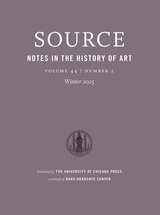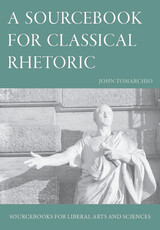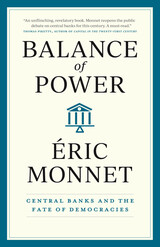
Two decades of financial crises have dramatically expanded central banks’ powers. In 2008, and then again in 2020, unelected banking officials found themselves suddenly responsible for the public welfare—not just because it was necessary but based on an idea that their independence from political systems would insulate them from the whims of populism. Now, as international crises continue and the scope of monetary interventions grows in response, these bankers have become increasingly powerful.
In Balance of Power, economist and historian Éric Monnet charts the rise of central banks as the nominally independent—but unavoidably political—superpowers of modern societies. This trajectory, Monnet argues, is neither inevitable nor unstoppable. By embracing the political natures of today’s central banks, we can construct systems of accountability for how they interact with states and societies. Monnet shows that this effort will do more than guard against unjust power; it will put the banks to work for greater, more democratic ends.
With existential challenges looming and the work of the Federal Reserve and European Central Bank more important than ever, Balance of Power offers a trenchant case for what this century’s central banks can—and must—become.

Late one night in July 1832,Martin Van Buren rushed to the White House where he found an ailing President Andrew Jackson weakened but resolute. Thundering against his political antagonists, Jackson bellowed: “The Bank, Mr. Van Buren, is trying to kill me, but I shall kill it!”With those famous words, Jackson formally declared “war” against the Second Bank of the United States and its president Nicholas Biddle. The Bank of the United States, which held the majority of Federal monies, had been established as a means of centralizing and stabilizing American currency and the economy, particularly during the country’s vulnerable early years. Jackson and his allies viewed the bank as both elitist and a threat to states’ rights. Throughout his first term, Jackson had attacked the bank viciously but failed to take action against the institution. Congress’ decision to recharter the bank forced Jackson to either make good on his rhetoric and veto the recharter or sign the recharter bill and be condemned as a hypocrite.
In The Bank War: Andrew Jackson, Nicholas Biddle, and the Fight for American Finance, historian Paul Kahan explores one of the most important and dramatic events in American political and economic history, from the idea of centralized banking and the First Bank of the United States to Jackson’s triumph, the era of “free banking,” and the creation of the Federal Reserve System. Relying on a range of primary and secondary source material, the book also shows how the Bank War was a manifestation of the debates that were sparked at the Constitutional Convention—the role of the executive branch and the role of the federal government in American society—debates that endure to this day as philosophical differences that often divide the United States.
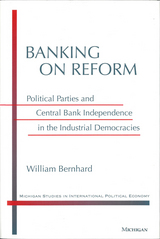
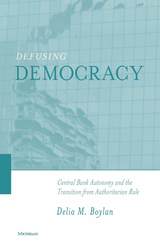
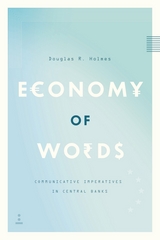
Holmes examines the New York District Branch of the Federal Reserve, the European Central Bank, Deutsche Bundesbank, and the Bank of England, among others, and shows how officials there have created a new monetary regime that relies on collaboration with the public to achieve the ends of monetary policy. Central bankers, Holmes argues, have shifted the conceptual anchor of monetary affairs away from standards such as gold or fixed exchange rates and toward an evolving relationship with the public, one rooted in sentiments and expectations. Going behind closed doors to reveal the intellectual world of central banks,Economy of Words offers provocative new insights into the way our economic circumstances are conceptualized and ultimately managed.
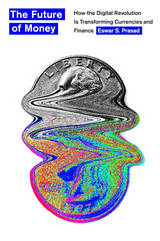
An Economist Best Book of the Year
A Financial Times Best Book of the Year
A Foreign Affairs Best Book of the Year
A ProMarket Best Political Economy Book of the Year
One of The Week’s Ten Best Business Books of the Year
A cutting-edge look at how accelerating financial change, from the end of cash to the rise of cryptocurrencies, will transform economies for better and worse.
We think we’ve seen financial innovation. We bank from laptops and buy coffee with the wave of a phone. But these are minor miracles compared with the dizzying experiments now underway around the globe, as businesses and governments alike embrace the possibilities of new financial technologies. As Eswar Prasad explains, the world of finance is at the threshold of major disruption that will affect corporations, bankers, states, and indeed all of us. The transformation of money will fundamentally rewrite how ordinary people live.
Above all, Prasad foresees the end of physical cash. The driving force won’t be phones or credit cards but rather central banks, spurred by the emergence of cryptocurrencies to develop their own, more stable digital currencies. Meanwhile, cryptocurrencies themselves will evolve unpredictably as global corporations like Meta and Amazon join the game. The changes will be accompanied by snowballing innovations that are reshaping finance and have already begun to revolutionize how we invest, trade, insure, and manage risk.
Prasad shows how these and other changes will redefine the very concept of money, unbundling its traditional functions as a unit of account, medium of exchange, and store of value. The promise lies in greater efficiency and flexibility, increased sensitivity to the needs of diverse consumers, and improved market access for the unbanked. The risk is instability, lack of accountability, and erosion of privacy. A lucid, visionary work, The Future of Money shows how to maximize the best and guard against the worst of what is to come.
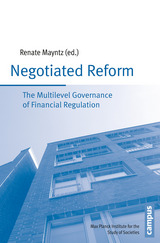

This book recounts the emergence of central banking Ideas and Institutions In this country—from the formation of the First Bank of the United States to the enactment of the Federal Reserve System. Focusing on the Intellectual and practical origins of monetary policy, Timberlake offers the first study on the political economy of central banking. He traces the Ideas that surrounded monetary events through records of congressional debates, documents of the House and Senate, and reports of the Secretary of the Treasury and the Comptroller of the Currency. Almost none of this material has been used before as a method of analyzing monetary Institutions and their growth.
Timberlake's principal assumption is that these debates and government activities mirrored social norms. He corrects some traditional beliefs surrounding such monetary mysteries as the causes of the inflation of 1812-1815, the effects of the Specie Circular, and the decline of silver influence In the early 1890s. Economists, historians, lawyers, government policy makers, and politicians will welcome the new insights on the origins of central banking in the economic and political milieus of the eighteenth through the twentieth centuries.
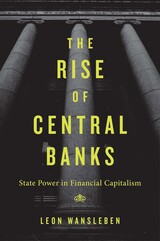
A bold history of the rise of central banks, showing how institutions designed to steady the ship of global finance have instead become as destabilizing as they are dominant.
While central banks have gained remarkable influence over the past fifty years, promising more stability, global finance has gone from crisis to crisis. How do we explain this development? Drawing on original sources ignored in previous research, The Rise of Central Banks offers a groundbreaking account of the origins and consequences of central banks’ increasing clout over economic policy.
Many commentators argue that ideas drove change, indicating a shift in the 1970s from Keynesianism to monetarism, concerned with controlling inflation. Others point to the stagflation crises, which put capitalists and workers at loggerheads. Capitalists won, the story goes, then pushed deregulation and disinflation by redistributing power from elected governments to markets and central banks. Both approaches are helpful, but they share a weakness. Abstracting from the evolving practices of central banking, they provide inaccurate accounts of recent policy changes and fail to explain how we arrived at the current era of easy money and excessive finance.
By comparing developments in the United States, the United Kingdom, Germany, and Switzerland, Leon Wansleben finds that central bankers’ own policy innovations were an important ingredient of change. These innovations allowed central bankers to use privileged relationships with expanding financial markets to govern the economy. But by relying on markets, central banks fostered excessive credit growth and cultivated an unsustainable version of capitalism. Through extensive archival work and numerous interviews, Wansleben sheds new light on the agency of bureaucrats and calls upon society and elected leaders to direct these actors’ efforts to more progressive goals.
READERS
Browse our collection.
PUBLISHERS
See BiblioVault's publisher services.
STUDENT SERVICES
Files for college accessibility offices.
UChicago Accessibility Resources
home | accessibility | search | about | contact us
BiblioVault ® 2001 - 2025
The University of Chicago Press


